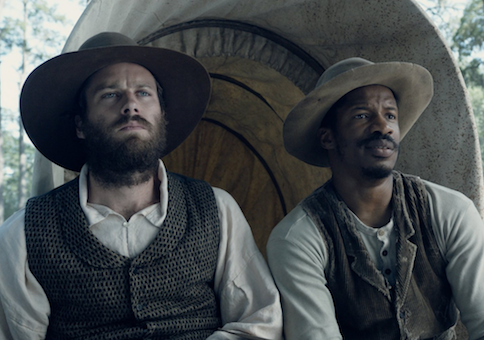The Birth of a Nation isn’t as compelling a glimpse into the horrors of slavery as 12 Years a Slave. Nor is it as epic as previous films about uprisings, such as Braveheart or Spartacus. Though it features several commanding performances and has a number of heartrending moments, Nate Parker’s retelling of Nat Turner’s rebellion feels loosely strung together and, ultimately, lacking in dramatic tension.
The film begins with Turner as a boy, a young slave in Virginia. He is taken before a circle of elders, meeting under cover of darkness in the woods around a campfire. Old African songs are sung as we are informed that this boy bears the marks of a prophet: "We shall listen to him," the elders say. A prophecy for a prophet.
One of the rare literate slaves, Nat is taught the Bible backwards and front by Elizabeth Turner (Penelope Ann Miller), the mistress of Turner’s plantation. He preaches about the importance of chattel obeying their masters, reminding them that heaven awaits those who suffer in silence, as God intended. Samuel Turner (Armie Hammer) is complimented on his property’s behavior by the bulbous and blotto Reverend Zalthall (Mark Boone Junior), who has a plan: a reverend roadshow of sorts, one in which Nat natters on about the importance of turning the other cheek, even when that cheek is sure to be chafed by rawhide.
Nat is relatively sheltered, living with the proverbial good master—one who treats his property well, who buys an attractive young woman at Nat’s request, who stands up for Nat when a loudmouthed white man falsely accuses him of assaulting his wife. But their relationship sours during Nat’s speaking tour. They, and we, see the horrors of slavery more viscerally. Slaves who have their meals cut to one per day when times are lean, and shackled men on a hunger strike who get their teeth knocked out so a funnel can be shoved into the bloody maw that remains, scar the psyche.
These cruelties drive Samuel to drink, and the drink leads him to engage in cruelties of his own. The tipping point is a pair of sexual assaults—one gang rape perpetrated against Nat’s wife by a trio of slave catchers; the other involving Samuel giving the wife of a slave to a neighboring plantation owner for a post-dinner treat. These brutalities spur Turner to action, leading to the brief, bloody insurrection that comprises the film’s final 20 minutes.
The film’s muddy, somewhat smeared aesthetic works best in the sequences depicting Nat Turner’s visions—visions that the film does very little with—but feels sloppy otherwise. Parker’s performance is top notch, however, demanding the attention of viewers throughout. His rousing speech in front of a group of beleaguered, hungry slaves—fighting back tears, voice tremulous with anger and rage and, perhaps, the softest glimmer of hope that change can occur if he can just find the right verses—is an Oscar-reel moment, for sure.
Parker has repeatedly cited Mel Gibson’s Braveheart as an influence on The Birth of a Nation, and it’s instructive to consider that film when wondering just why this one doesn’t quite work. While the two pictures share many of the same beats—they’re both about surprisingly literate leaders driven to bloody rebellion by acts of sexual aggression against their women—their rhythms are entirely different. Braveheart’s rebellion begins small and ramps up, spending the better part of two hours showing William Wallace’s successes and setbacks, but Turner’s crusade begins and ends too quickly to create anything resembling dramatic tension.
This is, perhaps, a problem with the subject matter. Nat Turner’s rebellion lasted a mere 48 hours, making it difficult to give his uprising a sense of ebb and flow. Also, it involved the brutal murder of a few dozen men, women, and children, a fact Parker downplays; during the rebellion we see only a few white folks killed, and only one woman, just off screen. Perhaps there were budgetary constraints, or perhaps Parker realized it would be hard to portray the heroism involved in murdering little kids and their moms. One wonders if the filmmakers wouldn’t have been better off portraying the rebellion in all of its Old Testament horror—real wrath-of-God type stuff, more in line with Turner’s preaching during the second half of the film.
The Birth of a Nation has devolved into a totem in the culture wars—first a hero at Sundance for having the good fortune to debut in the midst of the #OscarsSoWhite fauxtroversy; then a goat for Parker’s clumsy handling of long-ago rape accusations during pre-release interviews—for reasons entirely outside of what’s up on the screen: an intermittently powerful yet underwhelming film.
